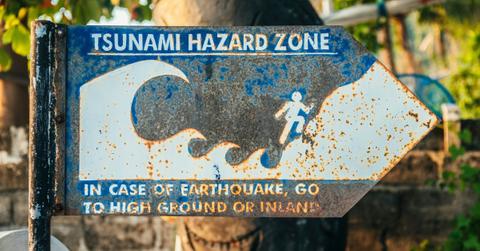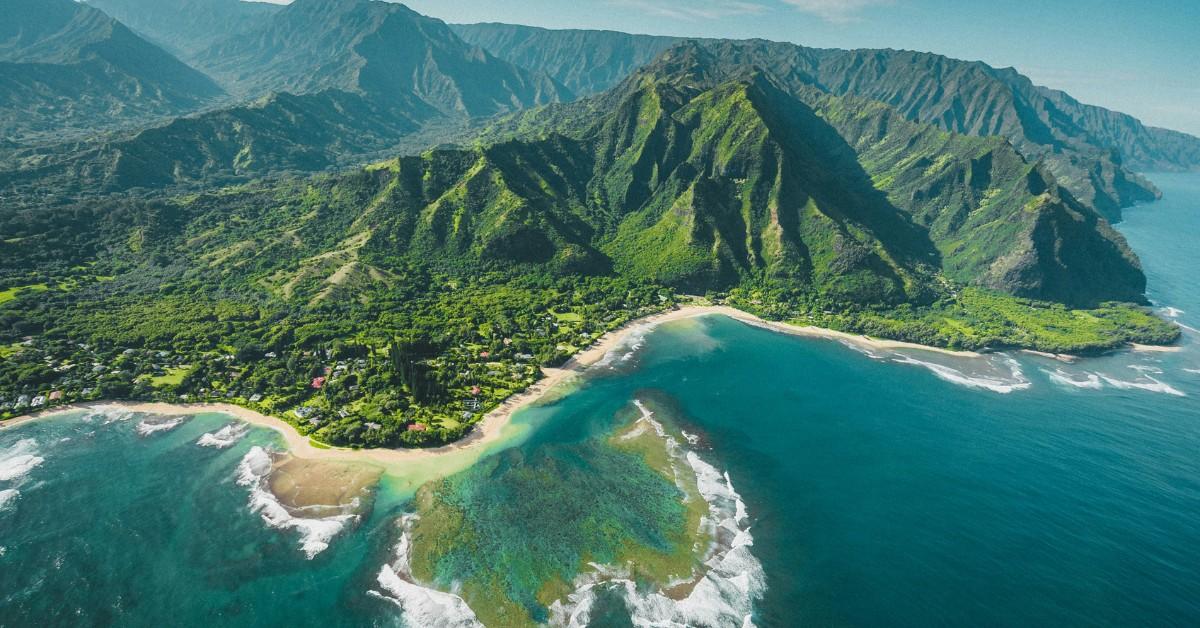Hawaii’s Deadly Tsunami History and What It Means Today
Nine caused 293 deaths.
Published July 31 2025, 9:02 a.m. ET

The word tsunami can strike fear in the heart of anyone who remembers the 2011 tsunami that hit Japan, causing a nuclear meltdown at one of the country's reactor sites. It can also conjure the terror that those in Indonesia must've felt when a tsunami killed thousands in the country in 2004 as 100-foot waves battered the shore.
In fact, tsunamis are such a scary force of nature that many areas have extensive warning systems to help track and prepare for these threats to keep residents safe.
Take the island of Hawaii, for example. The state has many different systems put in place to help protect residents from tsunamis, which is the name for the massive wave (or waves) of water triggered by an earthquake. But are all those protections really necessary? Has a tsunami ever hit Hawaii before?
Keep reading to learn more.

Has a tsunami ever hit Hawaii?
The island chain that makes up the state of Hawaii is no stranger to tsunamis. In fact, the National Weather Service says the state has been hit by an astounding 160 tsunamis since 1812.
Of those, nine caused 293 deaths and came along with a price tag of more than $625 million. An estimated 245 of those killed died due to tsunamis that were triggered by events that took place quite a distance away.
That's because a lot of Hawaii's vulnerability comes from the fact that it's located in a perfect spot to be hit by waves generated by earthquakes in the Pacific Ring of Fire.
Some of the notable tsunamis to hit the state include:
- April 1, 1946, which originated from the Aleutian Islands
- Nov. 4, 1952, which originated in Kamchatka, Russia
- March 9, 1957, which originated in Aleutian Islands
- May 22, 1960, which originated in Chile
- March 28, 1964, which originated in Alaska
The earliest record of a tsunami comes from the oral history of some of the state's indigenous residents, according to the National Weather Service, which they say hit the coast of Moloka'i in the 16th century.
A Russian earthquake triggered a tsunami watch in Hawaii in July 2025.
On July 29, 2025, a record-breaking 8.8 magnitude earthquake hit the eastern side of Russia, prompting experts and officials to issue tsunami warnings across the region. The alert included multiple coastal regions, like Japan, Alaska, and Hawaii.
The emergency alert system notified Hawaiians of the earthquake that occurred off the Kamchatka Peninsula, telling them to brace for impact from a possible tsunami that could hit shores sometime after 7 p.m. local time, according to USA Today.
According to CBS News, the tsunami waves eventually arrived during high tide. While they were small in comparison to other tsunamis to make landfall, they didn't do as much damage as they could've. It sounds like one gauge recorded water coming in at 4.9 feet above normal, which only caused mild flooding in areas closest to the shore.
Just a few hours later, at 10 p.m. local time, the Pacific Warning Center said that tsunami waves had peaked.
While the West Coast did end up seeing some small tsunami waves as well, they also faired a whole lot better than expected. Fortunately, it seems like everyone dodged a bullet from the worst of things during this event, preventing the 2025 tsunami from ranking up there with some of the more deadly ones to hit the region.